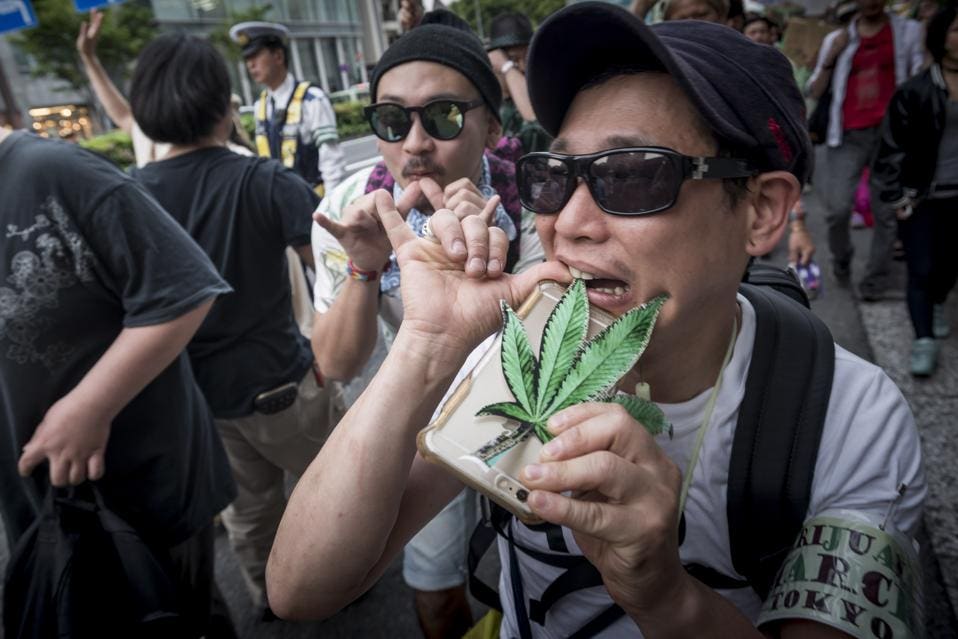Japan is set to criminalize the recreational use of cannabis while legalizing medical use.
The decision, announced last week, will take effect on December 12.
Although the possession and cultivation of marijuana are already illegal in Japan, the new law will also ban its use and impose a prison sentence of up to seven years for offenders.
At the moment, Japan does not impose penalties for cannabis use, partly to safeguard farmers who might inadvertently come into contact with the plant’s substances while cultivating it for hemp products. However, this approach has shifted due to growing concerns that the absence of a ban on use is contributing to increased drug abuse among young people.
Last year, Japan saw a record 6,482 people investigated for cannabis-related criminal cases, an increase of 1,140 from the previous year. Over 70% of those investigated were teenagers and young adults in their 20s, according to police data reported by Japanese news agency Kyodo News.
At the same time, Japan will allow the use of medical products derived from cannabis. Currently, such drugs are only authorized for use in clinical trials. However, patient advocacy groups have been pushing for access to cannabis-based CBD medications, according to Bangkok Post, which have already been approved in Europe and the U.S. for treating conditions like severe epilepsy, such as Epidiolex.
This move marks a significant shift in Japan’s cannabis policy, which aims to address both international medical advancements and local concerns over misuse.
The new regulations come after multiple governmental discussions and studies conducted over the years, especially from 2020 to 2023. Several committees examined the necessity of updating cannabis regulations, with a focus on the expanding medical applications of the substance and the rising cannabis use among Japan’s youth.
The new legislation allows the use of medical cannabis, representing a major shift from Japan’s previous ban on any medical use of cannabis. The updated law also introduces criminal penalties for illegal cannabis use, categorizing it as a narcotic under the Narcotics Control Act. Therefore, activities such as possession, use, and importation of cannabis are now subject to penalties similar to those for other controlled substances.
Previously, Japan did not impose specific penalties for cannabis use, concentrating enforcement on possession and trafficking instead. The revised law now considers cannabis use a criminal offense, with penalties comparable to those for other narcotics, which could include imprisonment. This is because the Japanese government has noted an increase in cannabis-related offenses, especially among younger people, leading to more arrests and indicating a rising trend of misuse.
Furthermore, the law imposes stricter regulations on cannabis cultivation, requiring growers to have licenses. Different licenses are needed for cannabis intended for pharmaceutical use versus industrial purposes. In fact, cultivators will now be classified based on the intended use of their cannabis. A “Type 1 license” is required for cannabis intended for industrial purposes, while a “Type 2 license” is needed for cannabis used in pharmaceuticals. Cultivators must adhere to strict guidelines regarding THC content in their crops and products, and the Minister of Health, Labour, and Welfare must approve any research or seed imports.
H/T: www.forbes.com



